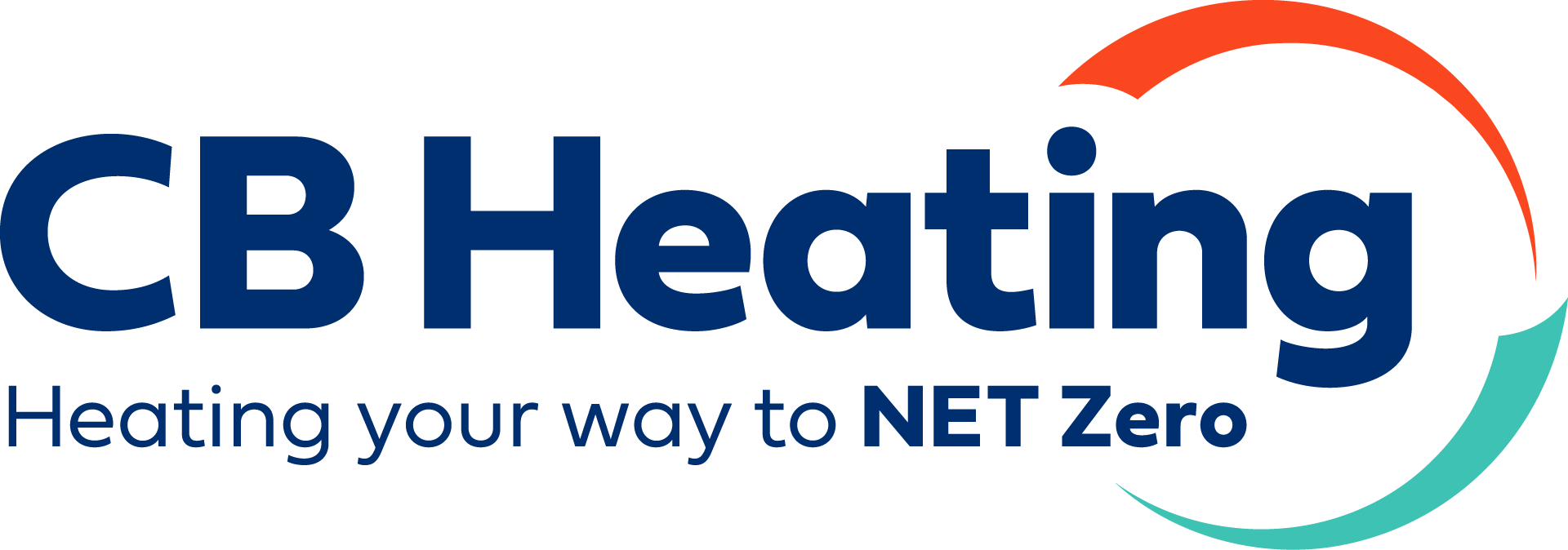How loud is an air source heat pump?
You might be surprised by just how quiet an air source heat pump is. Like any machine in operation, air source heat pumps do produce noise – but how much noise they produce is remarkably low, especially with newer models being designed with a focus on low-noise operation.
The noise is so low, in fact, that it’s about the same as a whisper, the gentle hush of a library, or the sound of a breeze through leaves.

Why do heat pumps produce noise?
Air-to-water heat pumps, like the ones we install, are essentially neat replacements of gas boilers in a normal domestic application – that is, you don’t have to replumb your whole house and can, in most cases, connect to your existing heating pipes and radiators.
They extract heat from the air outside your home to warm up water and radiators – so you can stay snug all year round.
The main element that produces noise in an ASHP is the fan that’s used to draw air over a refrigerant element. This fan runs at varying speeds depending on your home’s heating needs, but it also doesn’t run all the time.
How noisy are air source heat pumps?
As part of our bespoke system design service, we always opt for the model that we’ve learned will give you the best result, but noise is always factored in – so that you can stay warm peacefully.
The models we work with roughly have a low sound pressure level when operating in Standard Sound Mode which sounds something like birds chirping at a distance or the quiet hush of a library. This is significantly quieter, for example than a cooker extraction hood on a low setting.
One of our trusted manufacturers, Ideal, has had their Logic Air models officially rated among the quietest in the UK by industry-standard certification company Quiet Mark.
So, the only noise that you’ll get inside your home is, usually, the noise of radiators heating up – which is no different from what you’ve likely become used to with a gas boiler.
This is likely to be much less frequent (or non-existent) because your radiators will stay at a constant temperature rather than the constant cycling you tend to get with gas boilers.
Will my air source heat pump disturb my neighbours?
When your air source heat pump is installed, the following needs to be considered to comply with noise legislation and noise levels must not exceed 42dB when measured from your nearest neighbour’s property.
For context, the volume of a gas boiler ranges between 30-60dB. So, if you’re content with the volume of your gas boiler, you probably won’t even notice the volume of your new air source heat pump – and neither will your neighbours which is good news all round.
It’s also worth bearing in mind that the times your heat pump runs at the highest volume is when it needs to work harder to extract heat from the outside air. This is almost always in the depths of winter when you and your neighbours aren’t often outside anyway!
Are heat pumps too loud for MCS accreditation?
Not at all, every one of our installations is MCS registered and we go to great lengths to make sure they’re all accredited. Before the installation, we carry out an in-depth noise assessment for the unit itself in order to meet permitted development requirements.
Do I need a noise assessment?
No one wants to disturb their neighbours so it’s important to consider how your new air source heat pump may affect those living around you. After your installation has taken place, a noise assessment is carried out before installation. This measures the noise level of the heat pump from your neighbour’s property to ensure that it is no louder than the UK legal limit of 42dB. This isn’t loud at all. For example, the refrigerator in your kitchen usually produces the same level of sound.

How to minimise heat pump noise
The main way to mitigate heat pump noise, in much the same way as a gas boiler, is to run it efficiently.
But this isn’t something that is even considered once the heat pump has been installed and is running – they operate so quietly that you generally forget they’re even there.
We’ll advise as part of the system design a good installation spot to minimise noise from the outdoor unit. And our installers will also leave you with efficient settings that stop frequent heat pump cycling – an efficient, consistent system design helps the heat pump unit to not have to work as hard when heating your home.
Are there any noise regulations during a heat pump installation?
Usually, no heavy machinery needs to be used for a heat pump installation other than, occasionally, a powered masonry drill to run the pipework into your home. The outdoor unit is usually installed within a day’s work, with the rest of the project taking place inside your home.
However, there certainly are regulations for how loud a heat pump can be after it’s been installed. So, every one of our installations has a detailed noise assessment carried out and certified with MCS.
Our bespoke system report explains everything
Before any installations even begin, you’ll have had plenty of detailed conversations with our team and will have seen all the plans.
Our system designers provide clear and detailed guidance on every aspect of the installation. As part of the report, you will also receive a copy of the noise level assessment approved by MCS.


